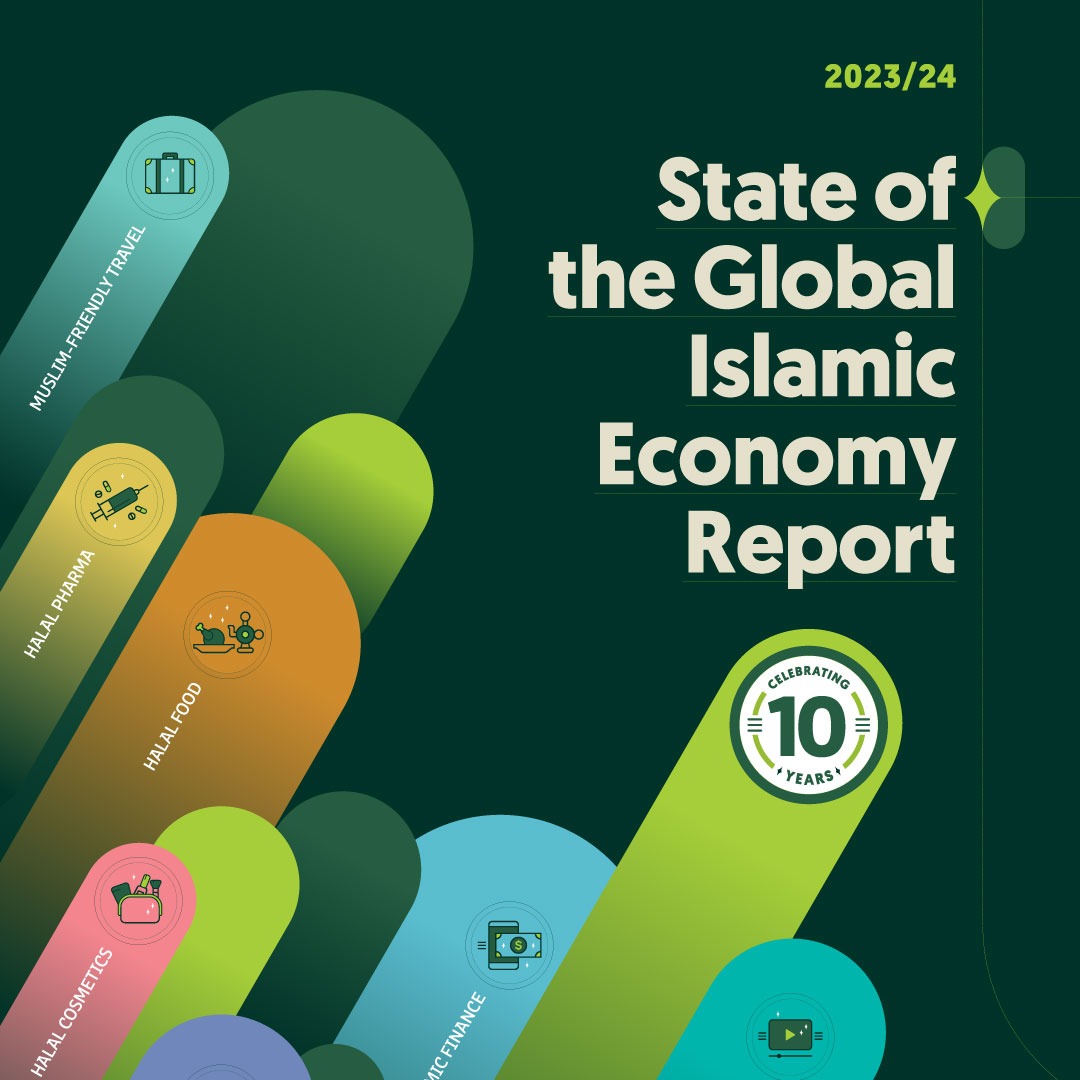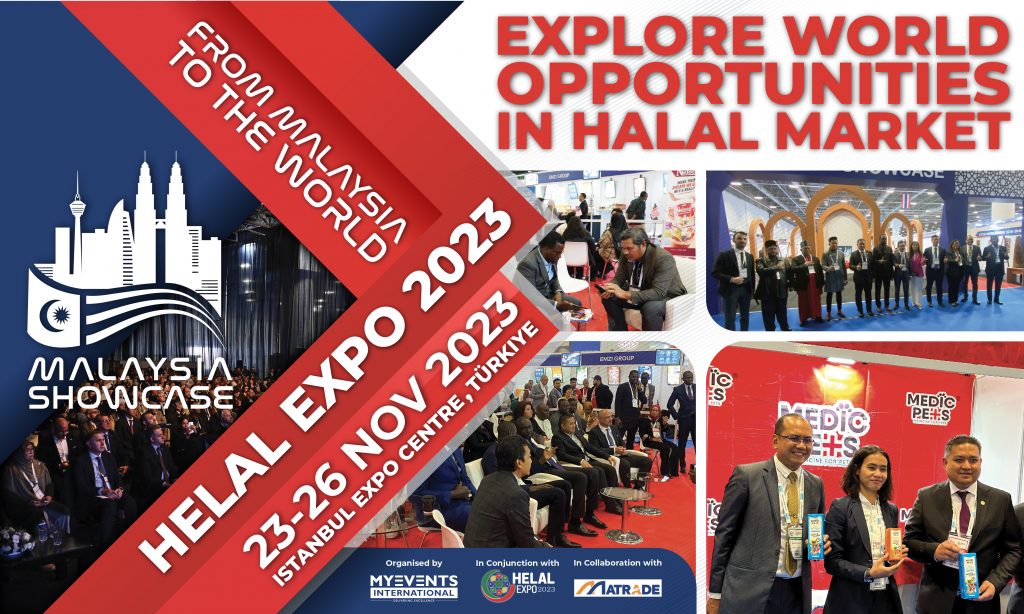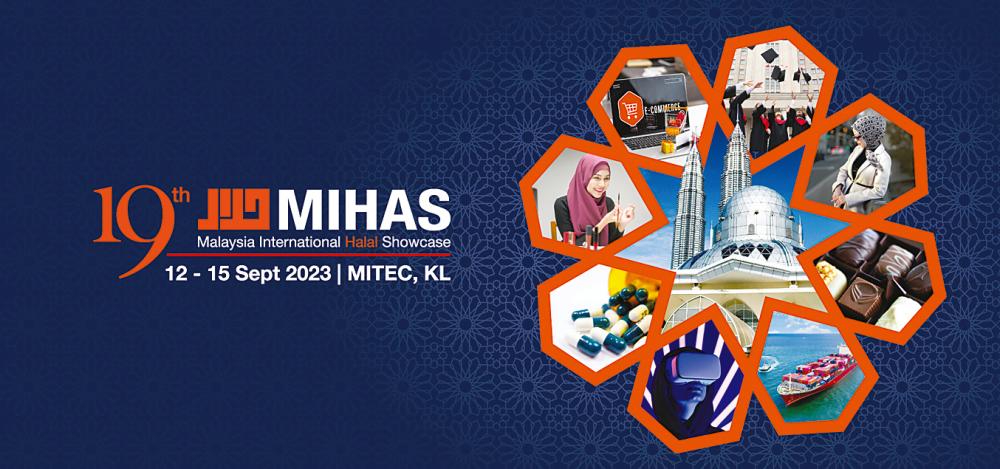In the midst of a challenging global landscape, marked by the Palestinian-Israeli conflict, ongoing conflict in Ukraine, the escalating climate crisis, and the transformative impact of the digital AI revolution, the 2023/2024 edition of the State of the Global Islamic Economy (SGIE) Report emerges as a beacon of insight into the socio-economic dynamics of core Islamic markets.
Halal Development Corporation Berhad (HDC) is proud to share that Malaysia, demonstrating resilience and sustained excellence, has once again secured the top position in the Global Islamic Economy Indicator (GIEI) for the remarkable 10th consecutive year. The 2023 rankings place Malaysia at the forefront, followed closely by Saudi Arabia, Indonesia, and the UAE.
Since the inception of the SGIE Report, Malaysia has consistently claimed the first position, showcasing the nation’s enduring commitment to the Islamic economy. Malaysia secured first place in Islamic Finance, Halal Food, and Media and Recreation, coupled with a commendable second-place ranking in Modest Fashion, third spot in Pharmaceuticals and fifth in Tourism.
“This milestone underscores the sustained progress within Malaysia’s Halal Ecosystem since the establishment of HDC in 2006,” said the Chairman of HDC, Khairul Azwan Harun.
“Malaysia pledges to uphold its leading position with the implementation of the Halal Industry Master Plan (HIMP2030), embracing technology, and digitizing the Halal Ecosystem. HIMP2030 is instrumental in driving the comprehensive expansion of Malaysia’s halal industry, fostering inclusivity and robust growth,” he added.
The State of Global Islamic Economy (SGIE) Report is prepared by Dinar Standard, a US-based research and advisory firm specializing in government innovation, the global halal economy, and social impact spaces. This year’s report, supported by the Dubai Department of Economy and Tourism (DET), emphasizes the expansion and promotion of Halal Malaysia certification and standards.
The global ranking is based on extensive research, covering critical contemporary issues such as financial, governance, awareness, social, and innovation developments within an ecosystem. Since the report’s inception in 2013, major economies and Muslim-majority countries have consistently referenced the annual report.
Moving forward, Malaysia anticipates continued leadership, driven by year-on-year growth in Halal Foods and bolstered by the increasing worldwide demand for products that adhere to halal standards. Malaysia, with 84 recognized Certification Bodies to date, is well-positioned to comply and participate, particularly in the Halal Ingredients sector such as halal gelatin.
 Spearheading a new era in global engagement, Malaysia, through the recent introduction of the Halal Diplomacy initiative, is actively reaching out to potential collaborators and stakeholders. HDC, as the driving force behind this initiative, is on a mission to integrate interested parties into the Halal Ecosystem. Khairul Azwan Harun believes that this strategic move not only positions Malaysia as a Center of Excellence in the Halal Economy but also solidifies its status as a Halal Hub for multinational companies seeking to tap into the diverse and dynamic opportunities presented by the Malaysian halal market.
Spearheading a new era in global engagement, Malaysia, through the recent introduction of the Halal Diplomacy initiative, is actively reaching out to potential collaborators and stakeholders. HDC, as the driving force behind this initiative, is on a mission to integrate interested parties into the Halal Ecosystem. Khairul Azwan Harun believes that this strategic move not only positions Malaysia as a Center of Excellence in the Halal Economy but also solidifies its status as a Halal Hub for multinational companies seeking to tap into the diverse and dynamic opportunities presented by the Malaysian halal market.
He added, “With Malaysia’s continuous lead in the Islamic Finance sector, HDC believes the nation can offer better financing and investment opportunities to the global business community. The stability, innovation, and ethical practices inherent in Malaysia’s Islamic Finance sector position the nation as a trusted partner for businesses seeking financial solutions aligned with Islamic principles.”
Khairul Azwan Harun also emphasised that under the leadership of Prime Minister Y.A.B. Dato’ Seri Anwar Ibrahim, the Halal Economy remains a key focus for national economic progress. The commitment to the Halal Economy extends beyond economic metrics, translating into tangible benefits for both the nation’s economy and contributing to the overall well-being of its people.




